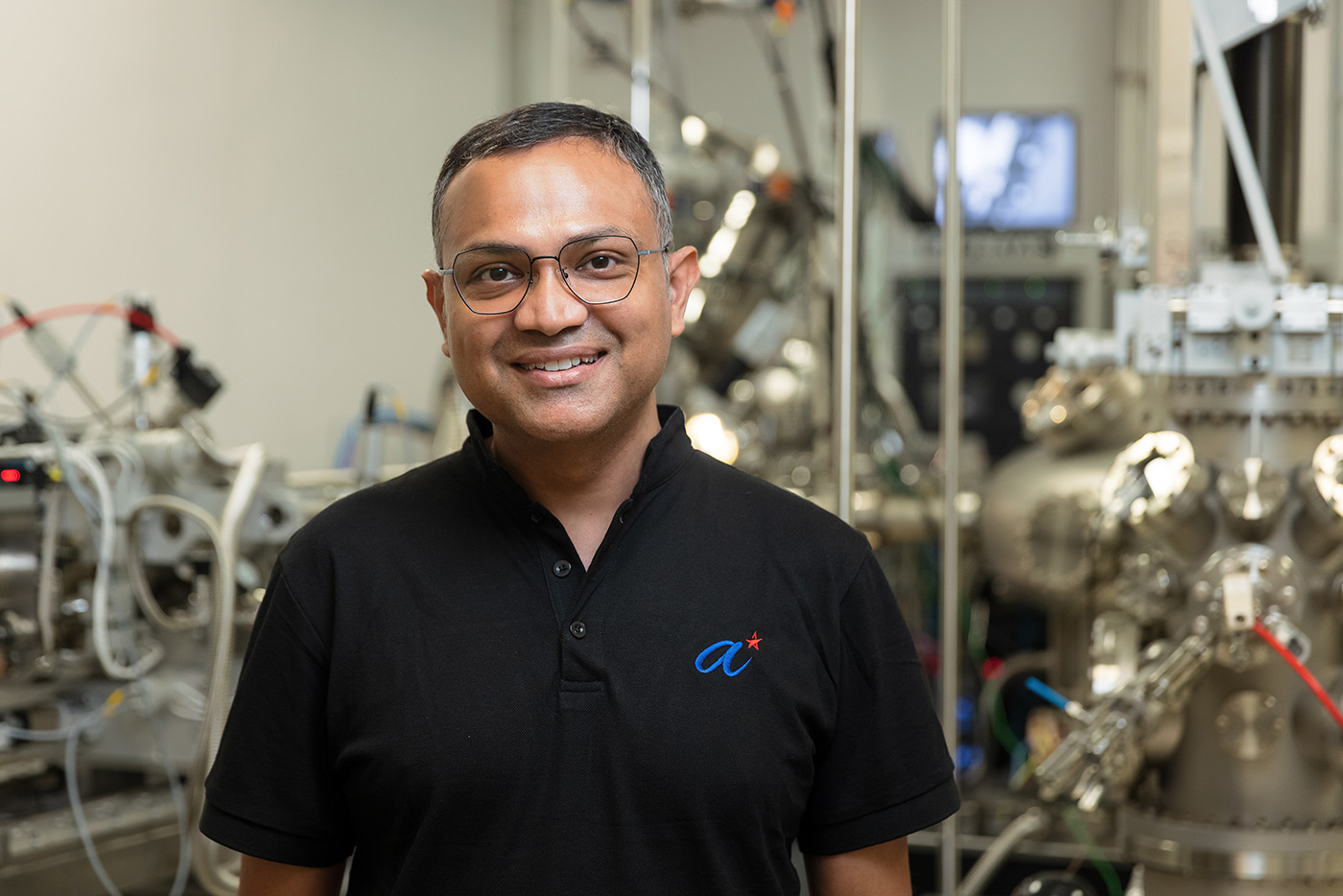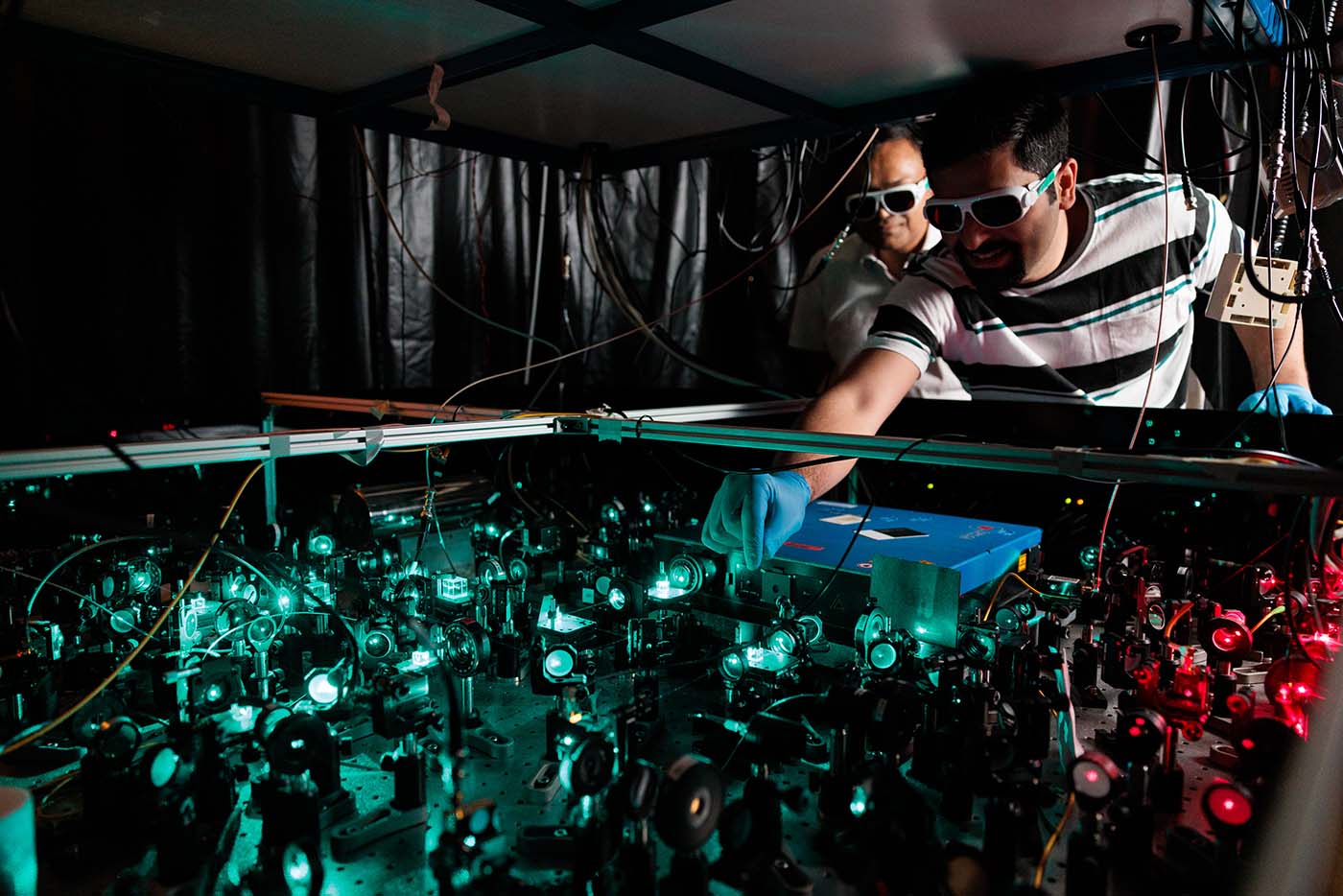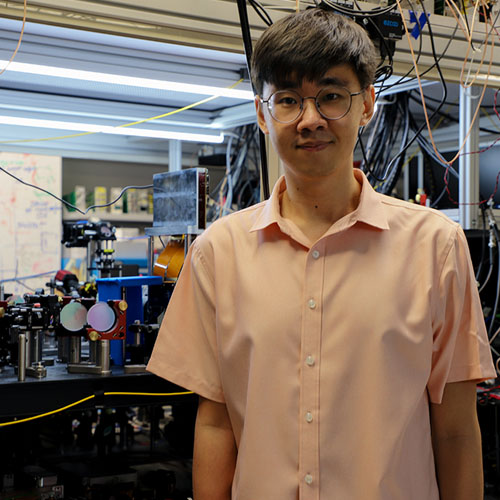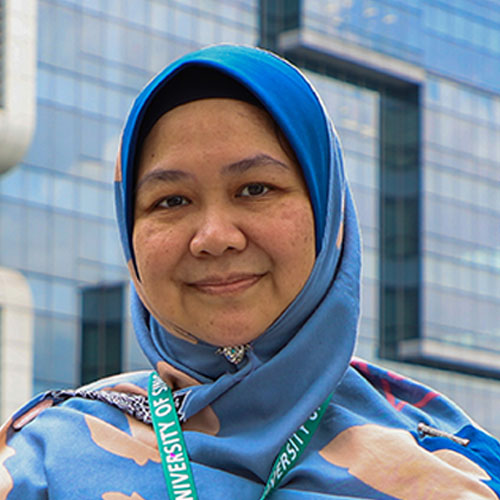Highlights
Meet a CQTian: Manas Mukherjee
 A Principal Investigator at CQT since 2012, Manas now has a co-appointment with A*STAR where he is not only Director of the NQFF but also Head of the A*STAR Quantum Technologies for Engineering (QTE) department at the Institute of Materials Research and Engineering.
A Principal Investigator at CQT since 2012, Manas now has a co-appointment with A*STAR where he is not only Director of the NQFF but also Head of the A*STAR Quantum Technologies for Engineering (QTE) department at the Institute of Materials Research and Engineering.
As the Director of the National Quantum Fabless Foundry (NQFF) announced May 2022, what has kept you busy?
For any new initiative, the initial phases are important and formative, in the sense that whatever we do now will have a long-term effect. For a national platform like NQFF, we have many stakeholders. We need to have them on board on various issues and work towards the goals which we’ve defined collectively. It is a fine balance between starting up and starting to deliver some of these promised goals.
Why is it important for Singapore to have a national foundry for quantum technologies?
The challenges of developing quantum technologies are multi-fold. Take the analogy of today’s computers for example: You could build a computer with reliable parts from different producers and developers, but knowing how to build the system does not mean you have the skills to produce the parts. The crucial role that NQFF plays is to develop parts for complex quantum systems that need to be microfabricated. We also aim to help the system builders make their systems more reliable and robust.
What strengths does Singapore have in this domain?
Over time, Singapore has established and maintained a network of cleanrooms. NQFF has access to these cleanrooms, their amazing tools and the expertise to operate them. We ride on this, but we also augment these cleanrooms with new tools that were not available in Singapore before NQFF. One example is an integrated angled evaporator and oxidation chamber, which is an instrument required to produce Josephson junctions for superconducting quantum bits. Here we saw that we could plug a gap.
The other strength is the existence of CQT. The good work that has come out of CQT is a big strength for system development, characterisation and design.
What is in the works for the foundry?
We are mainly working on four platforms. One is the superconducting circuit qubits. Apart from developing the qubits themselves, we also develop the electronics. The electronics is common as well to solid-state qubits, which includes silicon donor qubits. We are also developing integrated ion traps. This is quite a new field that is coming up and we are making progress in that as well.
What are you most excited by for the future of NQFF?
As the field is very nascent at the moment, we are operating more as a research foundry. Our vision is that with time, we will have enough capabilities in the form of intellectual property to develop devices. We think we would be able to spin out some of these device fabrication methods through startups or licensing. In the long run, we believe we could be in a state where NQFF not only supports local research but also acts as an ecosystem builder for the global supply chain.
Besides being the Director of NQFF, you are co-appointed as a Senior Scientist and Head of the A*STAR Quantum Technologies for Engineering (QTE) department at IMRE, A*STAR, and PI at CQT. How do balance your different roles?
I rely a lot on my team. At CQT, we have a research team that is quite established and active in our field. Similarly, in the QTE department at IMRE, we have excellent people and are supported by deputy heads with knowledge of how to run the department. Because NQFF is relatively newer, a substantial amount of my time is used to maintain and construct the structure of NQFF.
 Manas (back) with Research Fellow Ahmadi Molasaraei Seyed Morteza (front) with the group’s experimental setup at CQT.
Manas (back) with Research Fellow Ahmadi Molasaraei Seyed Morteza (front) with the group’s experimental setup at CQT.
What are you excited about in your own research at the moment?
We have one project on quantum machine learning. We’ve shown that you can use the quantum machines we have today to classify data. But most of the training is done on classical machines. We want to see if the quantum machine is stable enough to do the training as training takes a lot of time and data.
Another of our projects is on scaling up quantum devices. In this respect, we are looking to collaborate with NQFF on integrated ion traps. We are also looking at how to address multiple ions in ion traps which are separated out, as well as multiple ions within a single trap – are there alternative processes to address the individual ion qubits?
Besides physics, what are your other interests?
I like to play badminton but these days I can only play once a week for two hours. I also like to travel, and read books even though time is difficult to find. Some of my favourite books are by Yuval Noah Harari – Sapiens, Homo Deus, and 21 Lessons for the 21st Century. The third is a good summary of the first two.
They give a view of who we are as a humanity and what we are going to be. I see some similarities between the books and working in quantum physics. Both are curiosity driven and trying to understand how nature works.
This interview was adapted from a feature on NQFF in CQT's 2022 annual report.
Learn more
Related Stories
 | Singapore’s quantum ecosystem gets a boost from three national platforms May 31 2022 |
 | Meet a CQTian: Wee Wen Jun March 16 2023 |
 | Meet a CQTian: Mashitah Bte Mohammad Moasi April 11 2023 |






